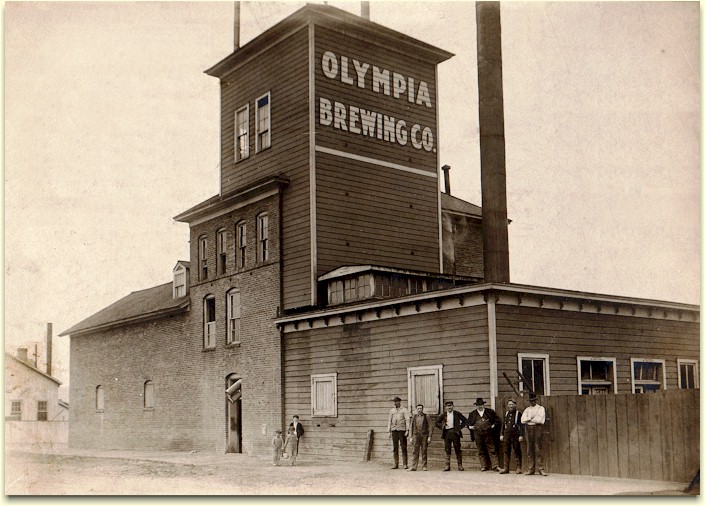Anchor Brewing Company's Demise: A Loss For The Craft Beer Industry

Table of Contents
The Rise and Fall of a Craft Beer Icon
Anchor Brewing, founded in 1896, holds a unique place in American brewing history. Long before the modern craft beer explosion, it was a stalwart, producing its distinctive Anchor Steam Beer, a style all its own. This wasn't just a beer; it was a statement, a testament to the enduring power of traditional brewing techniques in a world increasingly dominated by mass-produced lagers.
Anchor's impact on the craft beer revolution is undeniable:
- Founded in 1896: One of the oldest breweries in the US, it laid the groundwork for future generations of craft brewers.
- Pioneered the revival of handcrafted beers: Anchor's success helped reignite interest in brewing quality beers with unique flavor profiles.
- Developed unique brewing methods and styles: The unique process used to create Anchor Steam Beer set it apart and influenced countless other brewers.
- Became a symbol of San Francisco and California brewing culture: Its iconic imagery and beer are intrinsically linked with the city's identity.
However, this legacy brewery's recent struggles highlight the challenges facing even the most established players in the increasingly competitive craft beer market. The transition from independent brewery to a subsidiary under Sapporo Holdings ultimately contributed to its altered identity.
Financial Challenges and Corporate Ownership
Anchor Brewing's financial difficulties in recent years are complex and multifaceted. The craft beer market, once a niche sector, has exploded in popularity, leading to intense competition. This has resulted in:
- Increased competition: A saturated market with thousands of new breweries vying for consumer attention.
- Rising production costs: The cost of ingredients, labor, and distribution has significantly increased.
- Potential lack of investment in marketing and innovation under corporate ownership: Some argue that Sapporo's ownership may have prioritized cost-cutting over investment in the brand and product development.
- Changing consumer preferences: The rise of new craft beer styles and trends may have left Anchor Steam Beer, while still beloved by many, feeling somewhat outdated to some segments of the market.
These factors, compounded by broader economic challenges, significantly impacted Anchor's profitability and ultimately led to the decisions that have reshaped the brewery.
The Loss of Craft Beer Authenticity and Tradition
Perhaps the most concerning aspect of Anchor Brewing's recent changes is the shift away from its traditional brewing methods and recipes. For many craft beer enthusiasts, Anchor Steam Beer represented a standard of quality and authenticity. The modifications to its recipe and brewing process have raised concerns about:
- Changes in Anchor Steam Beer's recipe and brewing process: These changes have impacted the beer's distinct character, leaving some longtime fans disappointed.
- Concerns about the dilution of Anchor's unique brand identity: The modifications to the core product could diminish the iconic status that Anchor has long enjoyed.
- Impact on the preservation of brewing heritage and tradition: The changes raise wider questions about the preservation of craft brewing heritage and the risks involved in large corporate acquisition of legacy breweries.
- The broader implications for the craft beer industry's future: Anchor's story serves as a cautionary tale for other craft breweries, emphasizing the importance of maintaining a delicate balance between innovation and tradition.
The Impact on the San Francisco Brewing Scene
The decline of Anchor Brewing has a significant impact beyond the company itself. For San Francisco, Anchor is more than just a brewery; it's a cultural landmark. Its closure or significant change impacts:
- Impact on local employment: Job losses within the brewery and its supply chain.
- Loss of a significant tourist attraction: Anchor's brewery tours and tasting room were popular tourist destinations.
- Effect on the city's overall brewing scene and identity: The loss of such a prominent player diminishes San Francisco's rich brewing heritage.
Conclusion
Anchor Brewing Company's transformation marks a significant loss for the craft beer industry and a somber chapter in brewing history. The challenges faced by Anchor highlight the complexities of balancing growth, authenticity, and the preservation of legacy within a competitive and ever-evolving market. The future of craft beer hinges on maintaining a balance between innovation and the preservation of traditional techniques and flavors. Let's remember Anchor Brewing's contribution to the craft beer world and advocate for the preservation of brewing heritage. Support independent breweries and savor the unique character of truly handcrafted beers. Explore the rich history of Anchor Steam Beer and other legacy brews before they are lost to time. Let's raise a glass to the legacy of Anchor Brewing and celebrate the enduring spirit of craft beer.

Featured Posts
-
 Migrants Desperate Escape Eight Hours Hiding In A Tree From Ice
May 05, 2025
Migrants Desperate Escape Eight Hours Hiding In A Tree From Ice
May 05, 2025 -
 The Lighter Side Horners Comment On Verstappens New Role
May 05, 2025
The Lighter Side Horners Comment On Verstappens New Role
May 05, 2025 -
 Louisiana Derby 2025 Your Guide To The Odds Horses And Kentucky Derby Race
May 05, 2025
Louisiana Derby 2025 Your Guide To The Odds Horses And Kentucky Derby Race
May 05, 2025 -
 Onde Assistir Corinthians X Santos Ao Vivo Horario E Times
May 05, 2025
Onde Assistir Corinthians X Santos Ao Vivo Horario E Times
May 05, 2025 -
 Lab Owners Guilty Plea Faked Covid Test Results During Pandemic
May 05, 2025
Lab Owners Guilty Plea Faked Covid Test Results During Pandemic
May 05, 2025
